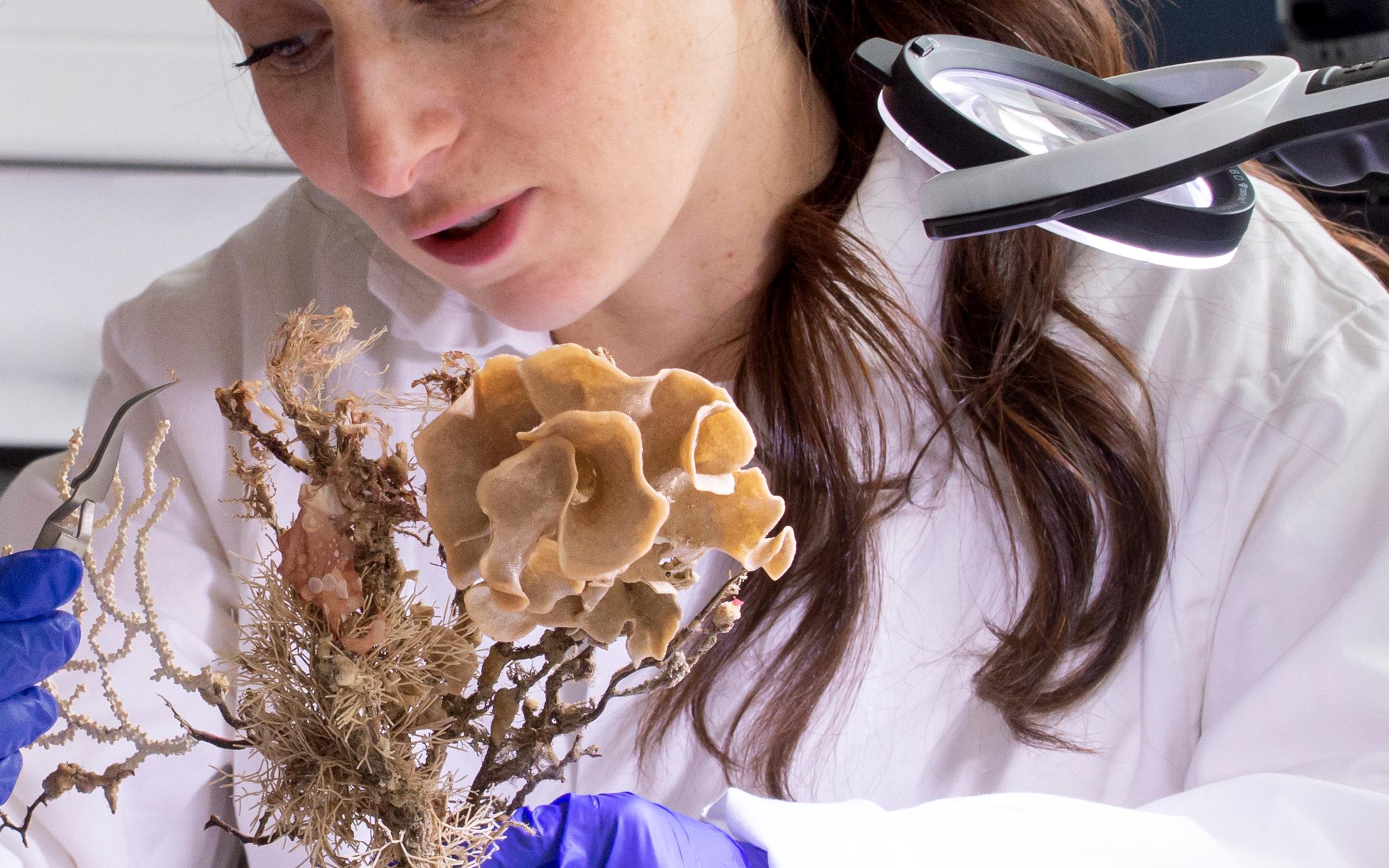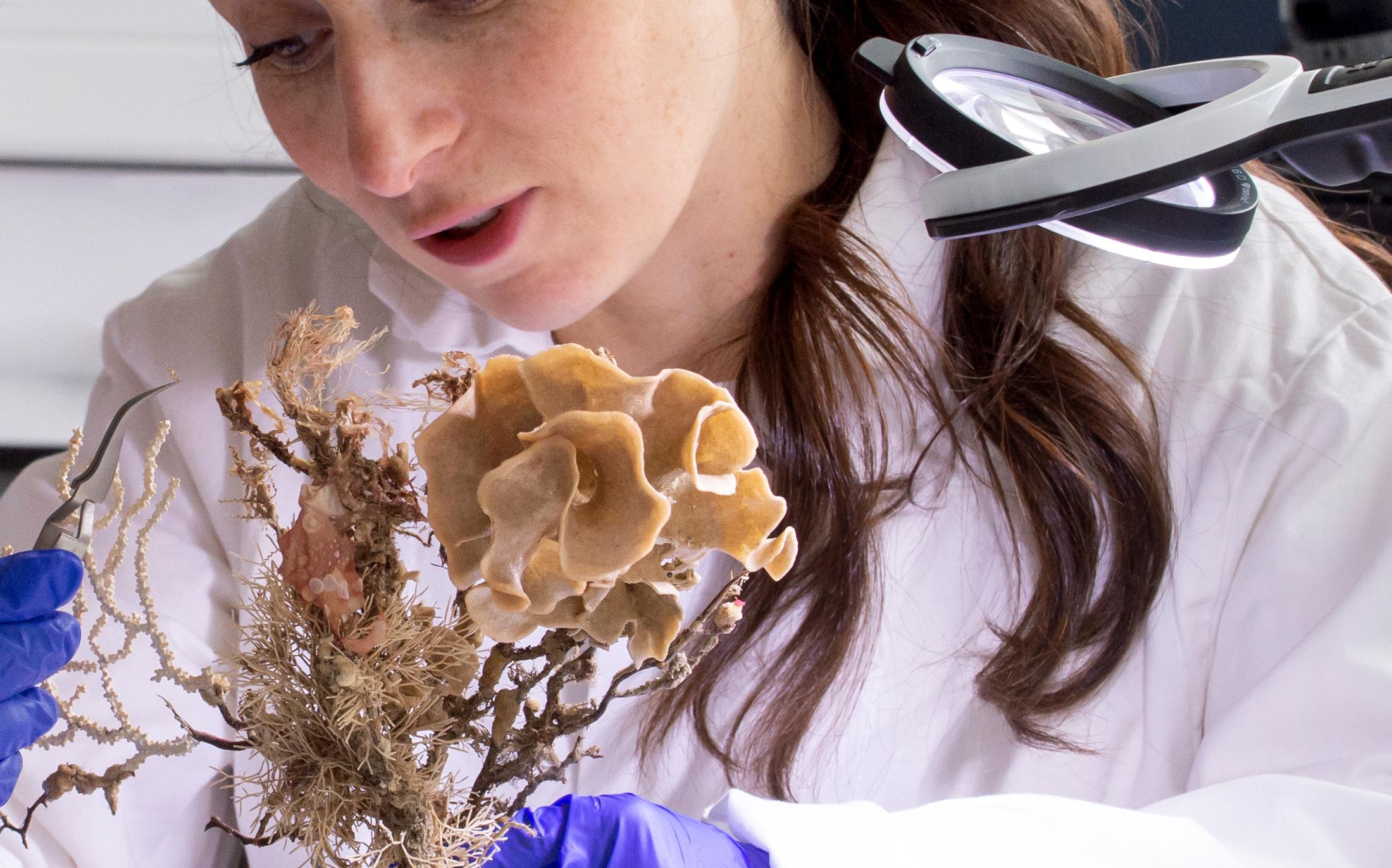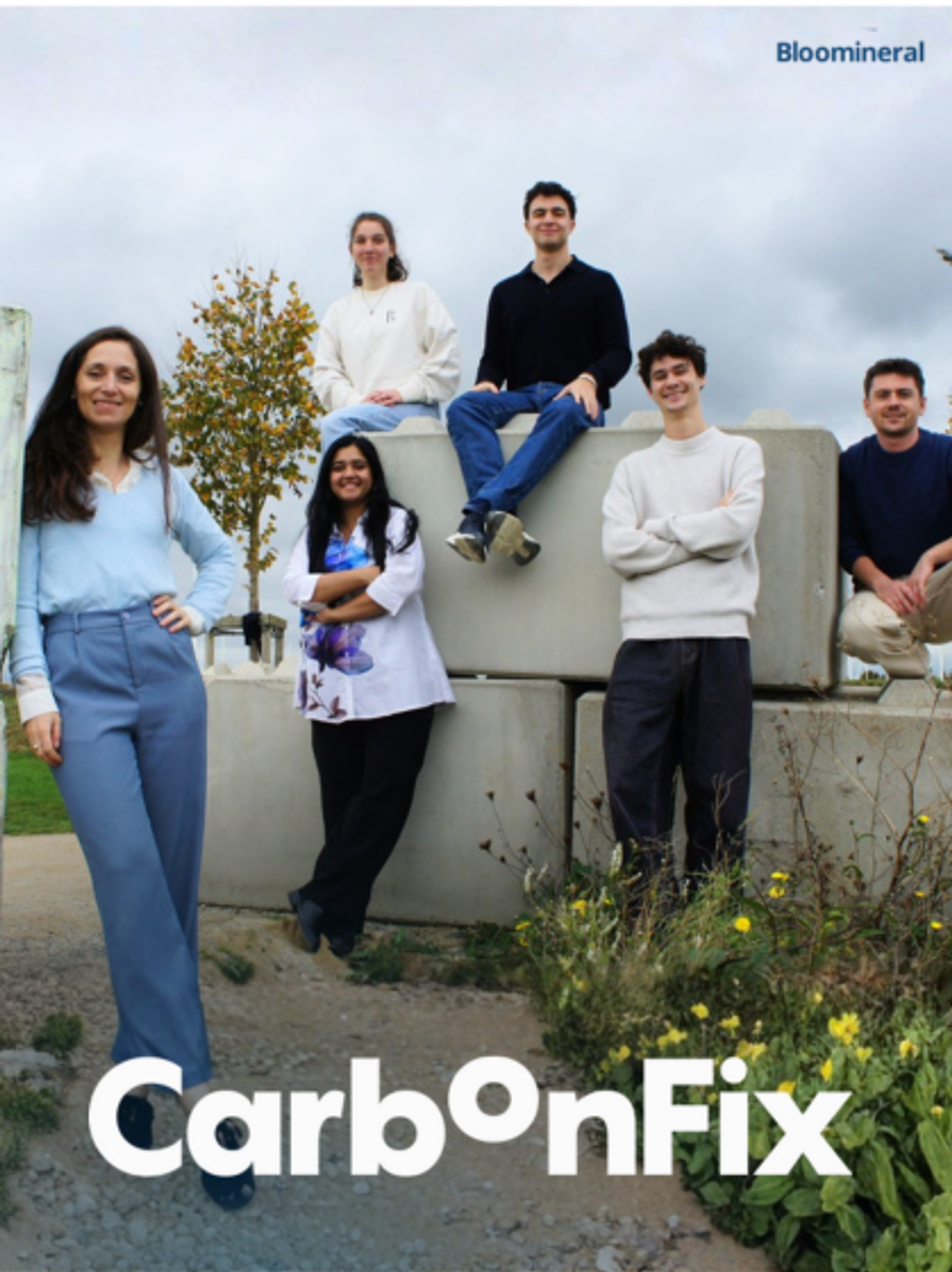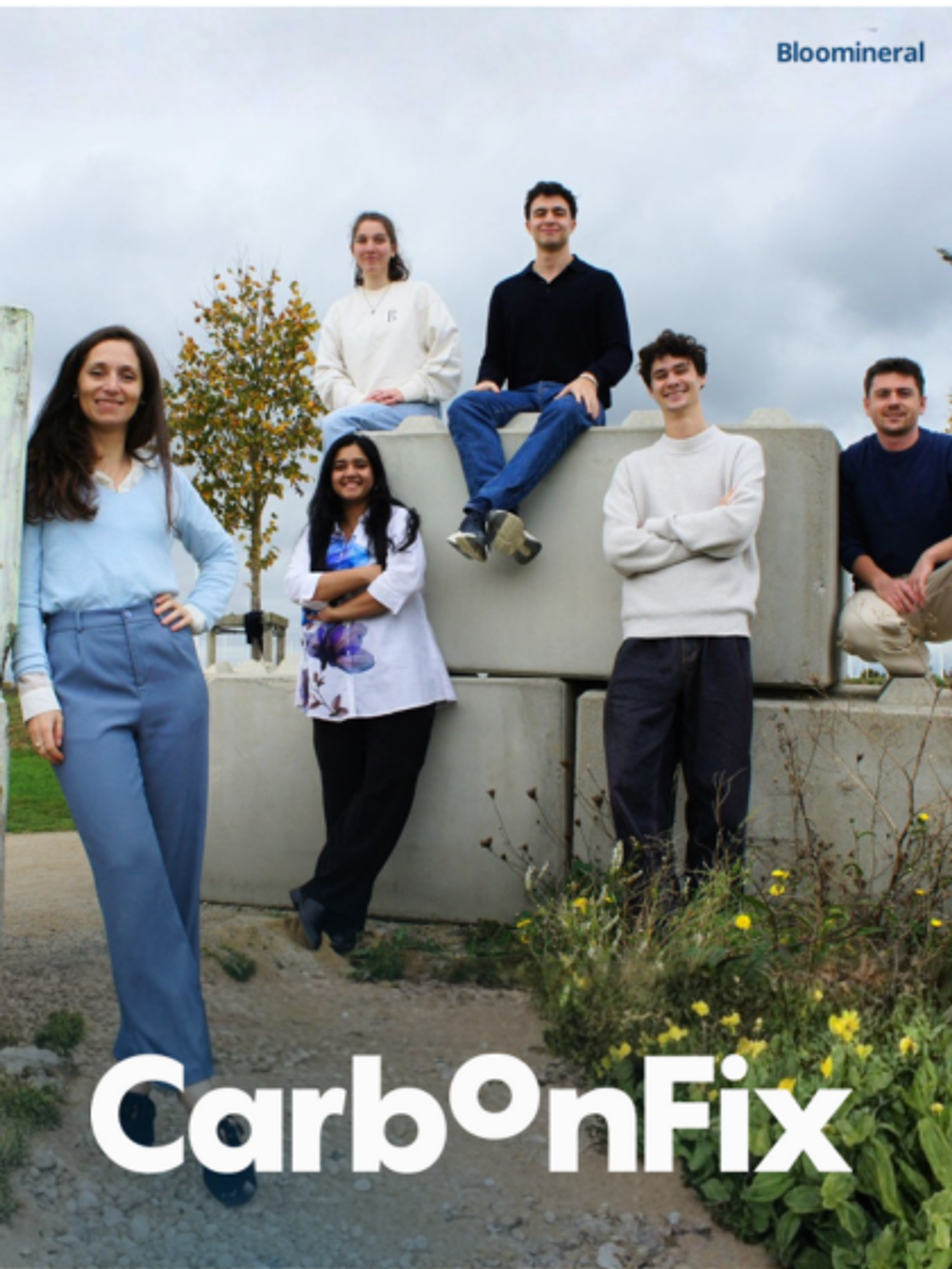Bloomineral
- pre-seed
- Carbon Removal
- Industry



Caroline Thaler, PhD
CEO & Founder
10+ years in academia. Recognized by WomenTechEU and Bezos Earth Fund as one of 50 climate solutions. Board member at AFEN.
Contact UsWe turn CO2, sunlight, and industrial waste into carbon-negative calcium carbonate for high-performance, low-carbon industrial applications.
Our process harnesses photosynthetic biomineralization to permanently sequester CO2 as high-performance solid carbonates, replacing cement, PCC, and other high-carbon materials in construction and manufacturing. This enables both carbon removal and emissions avoidance, turning buildings and products into long-lived carbon sinks while remaining cost-competitive and scalable.
investors
- Marble
- CarbonFix
- Bpifrance
0.44 t CO2
per ton of calcium carbonate produced.
In the race to tackle hard-to-abate emissions, Bloomineral pioneers a new path by turning CO2, waste, and sunlight into carbon-negative calcium carbonates for industry and construction.
Problem
Construction materials account for 7% of global CO₂ emissions—yet current low-carbon alternatives fall short on cost, performance, or scalability. White cement is 1.5× more polluting than grey, and most recycled or bio-based fillers fail to meet industry specs. With up to 10 Gt of CO2 needing to be removed annually by 2050, industry must adopt materials that both avoid and remove emissions. But buyers face tight margins, strict standards, and unreliable supply chains. There is an urgent need for drop-in, carbon-negative materials that perform and scale.


Solution
Bloomineral uses photosynthetic biomineralization to turn CO₂, industrial waste, and sunlight into high-purity calcium carbonate. Our process permanently sequesters 0.44 tCO₂ per ton of product while replacing carbon-intensive materials like cement, PCC, and paint additives. Unlike other mineralization techs, we require no pure CO₂ streams, no high capex, and no reformulation, making our solution scalable, cost-competitive, and spec-compliant. The result: a drop-in, carbon-negative material that meets industry standards and decarbonizes at scale.
Media About Us —


Article
November 05, 2025CarbonFix Grantees: Meet Caroline Thaler of Bloomineral


Article
September 03, 2024Biomineralisation et dechets de cimenterie, la recette de la startup Bloomineral pour capturer du CO2


Video
May 15, 2025Émissions négatives : l’écosystème des start-up en France


Video
February 19, 2025